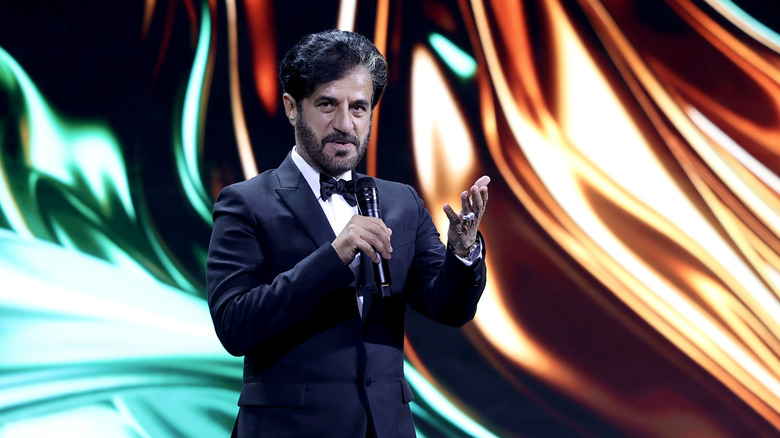FIA President Calls For V10s To Return To F1, But That's Never Going To Happen
Formula One has been desperately seeking new engine suppliers for its series in recent years, adjusting the series ruleset on engines to appeal to more brands. With Ford, Audi, and Cadillac set to join the series in coming seasons, it seems the effort to focus on small-displacement turbocharged V6s and advanced hybrid powertrains has paid off. Mercedes and Ferrari's support for the series hasn't seemed to wane at all, though Honda has recently made a U-turn on its efforts to abandon the sport. Renault, meanwhile, knew that it was building terrible engines for the Alpine team at great expense, and decided to bow out as an engine supplier, but not as a chassis constructor. Even without Renault, there haven't been this many engine manufacturers in F1 since Toyota, Honda, and BMW left following the 2008 financial crisis.
If the next-generation of engine regulations is already set and manufacturers seem happy with it, why is FIA President Mohammed Ben Sulayem trying to jack it all up by suggesting the series move to naturally aspirated V10s?
Looking forward while moving backward?
"This week's F1 launch in London has triggered a lot of positive discussion on the future of the sport," Ben Sulayem wrote on social media. "While we look forward to the introduction of the 2026 regulations on chassis and power unit, we must also lead the way on future technological motorsport trends.
"We should consider a range of directions including the roaring sound of the V10 running on sustainable fuel. Whichever direction is chosen, we must support the teams and manufacturers in ensuring cost control on R&D expenditure."
V10 engines exited the Formula One rulebook following the 2005 season when the series moved to a downsized V8, and every car has been powered by a turbocharged 1.4-liter V6 with a hybrid component since 2014. These days the cars are pushing nearly 1,000 horsepower, and for the 2026 season the combined power output will break the four-figure mark with an increased focus on electric boost.
The pinnacle of engineering
Formula One exists not as a display of the greatest racing drivers on the planet, but the greatest engineers. Each team is shown the same set of rules and has to interpret them to the best of their abilities. Driver skill is, of course, important, but a substandard driver in the best car can often easily outperform the best driver in a poorly car. Manufacturers like Cadillac, Ford, Audi, Ferrari, and Honda are looking for an engineering challenge that will push the future of road-going product further. Going back to the 1990s might be a fan-favorite move for a little while, but will it actually improve the on-track product? If manufacturers aren't learning from the experience, why would they continue to put up hundreds of millions of dollars to enter the sport? As road cars around the world continue their march toward all-electric propulsion, it makes more and more sense for Formula One to be a hybrid-heavy series. Developing performance-oriented advancements in battery and motor technology and efficiency will give manufacturers a keen competitive advantage in the EV and hybrid space. Why the heck do you think there are so many manufacturers in Formula E?
It is certainly just my opinion, but "sustainable fuels" are an expensive boondoggle leading nowhere, and the FIA is doing itself a disservice by hanging all of its green carbon-neutrality pledges on that hat rack. Electrification is, and remains, the future of motorsport, F1 included.
